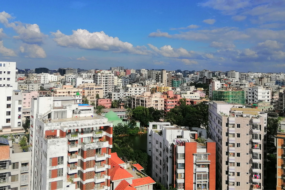The rapid spread of metro rail network across the country, especially in Tier 2 cities is contributing to the rising fortunes of real estate, triggering increase in land prices along metro corridors.
Metro lines have become a lifeline for many cities, serving as efficient public transport system. The successful implementation of any metro corridor always has a direct impact on real estate as it leads to an increase in land value besides a change in land use and increasing densification along the corridor. Metros and monorails, for example, make significant contributions to reduce traffic congestion . Thus, projects planned in the surrounding area see an increase in urban real estate value, as consumers are willing to pay more for convenience. According to JLL ,the Metro corridors in Tier 2 cities have seen 8-10 percent rise in land prices.Empirically, depending upon the location, land use, and micro market’s overall use, the value of properties is expected to go up 10-15% from current values with the launch of a metro corridor.
Apart from metropolitan cities, the metro rail transit plays a significant role in intracity transportation, which prompted the Central Government to propose Metro Lite, Neo-Metro, and Water Metro in Tier-II cities such as Lucknow, Patna, Jaipur, Ahmedabad, Pune, Kochi, and Coimbatore, which will provide an efficient mass public transportation system. It will provide individuals with convenient mobility to go to intra-city locations .
A.Shankar, Chief Operating Officer and Head, Strategic Consulting and Valuation advisory, India, JLL says that residential, as well as commercial market, has seen a steady growth along the metro corridors in Tier-II cities, owing to increase in developments alongside the routes. On average, the landowners with land near metro corridors under construction can command a premium of 5-7% and localities already well connected with metros can command a premium of 8-10%. Additionally, it has been observed that appreciation in land value has been on a rise after the metro operation and increase on an average by 5% annually over other locations, compared to the construction and planning phase.
The prices of residential properties in South Delhi rose 15-20% in the past five to six years, while the micro-market of Corridor-I and Corridor-III in Hyderabad saw rates rise 15-20% from 2018 to the first quarter of 2022, according to an assessment made by JLL. Anna Nagar Second Avenue, Thirumangalam pockets of Chennai saw an increase in land prices closer to metro stations by 15-35%. The micro-market in Bengaluru of CBD along with a few SBD locations like Indiranagar, CMH Road, Jayanagar, Malleswaram, Yeshwanthpur, Rajajinagar, saw rates rise 8-10% as soon as the east-west and north-south corridors opened for public use.
Several new Tier 2 cities are seeing the launch of metro corridors. Patna Metro Phase 1 has begun the construction of a 32.92 km metro line in 2020. Nagpur Metro has also approved a DPR for the expansion of a 48km Metro line. Coimbatore metro is also at DPR preparation stage.As per 2022 Union Budget, Agra, Meerut, Kanpur, Ahmedabad, Kochi, Pune, and other cities will have metro services by 2025. Kochi Metro Railway Phase 2 of 118.9 km and Chennai Metro Railway Phase II of 118.9 km would both receive central funding. The Bengaluru Metro Project- Phase 2A and 2B will receive INR 14,788 crores in funding. While the Nagpur Metro Project Phase II and the Nashik Metro Project would each receive INR 5,976 crores and INR 2,092 crores.All this will greatly transform the face of Tier 2 cities, in turn fast tracking the growth of real estate in these cities.



